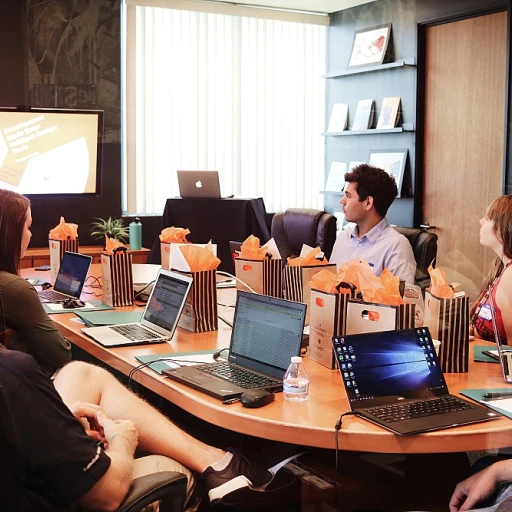
Understanding the clinical research coordinator role
What Does a Clinical Research Coordinator Do?
The clinical research coordinator role is central to the success of clinical trials and research projects. As a coordinator, you will manage the daily operations of research studies, ensuring compliance with regulatory requirements and best practices. This job involves working closely with the research team, study participants, and sometimes sponsors to ensure that every aspect of the clinical trial runs smoothly.
Key Responsibilities and Required Skills
Clinical research coordinators are responsible for a variety of tasks that require a mix of technical knowledge, organizational skills, and strong communication. Some of the main duties include:
- Recruiting and enrolling study participants
- Collecting and managing study data
- Ensuring compliance with regulatory and ethical standards
- Coordinating with the research team and external partners
- Maintaining accurate documentation for audits and reporting
- Problem solving and addressing unexpected challenges during the research project
Experience in clinical research, research training, and familiarity with compliance regulatory requirements are highly valued. You may also be asked to describe experience with data management, participant communication, and handling regulatory documents during your coordinator interview.
Why Interview Questions Matter
Understanding the coordinator role helps you anticipate the types of interview questions you might face. These questions are designed to assess your knowledge of clinical trials, your ability to work clinical environments, and your approach to problem solving. For example, you may be asked to describe a time you managed a challenging research study or how you ensure data integrity in a research project.
Preparing for these questions not only helps you ace the interview but also demonstrates your commitment to best practices in clinical research. For practical advice on how to succeed in HR job interviews, check out this guide to succeeding in job interviews.
Common interview questions and what they assess
What Interviewers Want to Know
During a clinical research coordinator interview, hiring managers use specific questions to assess your readiness for the role. They want to understand your experience with clinical trials, your knowledge of regulatory requirements, and your ability to manage research projects. These questions are designed to reveal your technical skills, problem solving abilities, and how well you work with a research team.
Common Questions and Their Purpose
- Can you describe your experience managing a clinical research study?
This question helps interviewers gauge your hands-on experience with research projects and your familiarity with study protocols, data collection, and participant management. - How do you ensure compliance with regulatory requirements?
Here, the focus is on your understanding of compliance regulatory standards and best practices in clinical research. Your answer should highlight your attention to detail and training in regulatory affairs. - What steps do you take to maintain accurate study data?
This question tests your data management skills and your commitment to data integrity throughout the clinical trial process. - How do you handle challenges with study participants?
Interviewers want to see your problem solving skills and your ability to communicate effectively with participants to ensure the success of the research study. - Describe a time you worked as part of a research team. What was your role?
This question explores your teamwork skills and your ability to collaborate with other research coordinators, investigators, and support staff.
Tips for Answering Effectively
- Use specific examples from your previous experience to illustrate your skills and knowledge.
- Connect your answers to the responsibilities of a clinical research coordinator, such as managing clinical trials, ensuring compliance, and supporting study participants.
- Show your understanding of the importance of research training and staying updated on best practices in the field.
- Highlight your ability to adapt to new challenges and your commitment to the success of each research project.
For more practical advice on how to ace your interview and stand out as a candidate, check out this guide on how to succeed in HR job interviews.
Behavioral questions and how to answer them
Demonstrating Problem Solving and Teamwork in Clinical Research
Behavioral interview questions are designed to reveal how you have handled real situations in previous roles, especially in clinical research settings. These questions help interviewers understand your approach to problem solving, teamwork, and compliance with regulatory requirements. Your answers should highlight your experience, skills, and ability to adapt to challenges in a research coordinator role. What to Expect from Behavioral Questions- Describe a time you managed a challenging clinical trial protocol or regulatory issue. How did you ensure compliance and what was the outcome?
- Can you give an example of how you handled a difficult situation with a study participant or research team member?
- Tell us about a research project where you had to coordinate multiple tasks under tight deadlines. How did you prioritize and manage your responsibilities?
- Describe experience working with data management or resolving discrepancies in clinical trial data.
- Share an example of how you contributed to training new research coordinators or team members.
Use the STAR method (Situation, Task, Action, Result) to organize your responses. This approach ensures you clearly describe the context, your specific role, the actions you took, and the results achieved. For example, when asked about managing a research study with regulatory challenges, outline the study, your coordinator responsibilities, the steps you took to ensure compliance, and the positive impact on the research project.
Highlighting Key Skills and Best Practices- Emphasize your ability to work clinical research protocols accurately and efficiently.
- Showcase your communication skills with both the research team and study participants.
- Demonstrate your understanding of compliance regulatory requirements and best practices in clinical trials.
- Provide examples of how you have contributed to the success of research projects through effective problem solving and collaboration.
Behavioral questions are an opportunity to show your readiness for the coordinator interview and your commitment to high standards in clinical research. For more on preparing for the transition into a new role, check out this guide on mastering the onboarding process.
Technical knowledge and scenario-based questions
Demonstrating Technical Expertise in Clinical Research
Clinical research coordinator interviews often include technical and scenario-based questions to evaluate your practical knowledge and problem-solving skills. These questions help interviewers assess your ability to manage clinical trials, ensure regulatory compliance, and handle real-world challenges in research projects.- Describe your experience with regulatory requirements. Interviewers want to know how familiar you are with compliance regulatory standards, such as Good Clinical Practice (GCP) and Institutional Review Board (IRB) processes. Be ready to discuss how you ensure all research activities meet these standards.
- How do you handle data management in a clinical trial? You may be asked to explain your approach to collecting, entering, and verifying data. Highlight your attention to detail and your experience with electronic data capture systems or paper-based records.
- Give an example of a challenging research study you coordinated. Use this opportunity to describe a specific research project, the obstacles you faced, and the steps you took to resolve issues. Focus on your problem-solving abilities and teamwork.
- What steps do you take to ensure participant safety and data integrity? This question assesses your understanding of best practices in protecting study participants and maintaining accurate records. Mention training, monitoring, and communication with the research team.
- How do you train new research coordinators or team members? Interviewers want to know about your leadership and mentoring skills. Share examples of how you have onboarded or supported colleagues in previous roles.
Scenario-Based Questions: Showcasing Your Approach
Scenario-based questions are designed to see how you would react in specific situations. Here are some examples you might encounter:| Question | What It Assesses | How to Answer |
|---|---|---|
| A participant misses a study visit. What do you do? | Problem solving, communication, protocol adherence | Describe your steps to contact the participant, document the deviation, and inform the research team while ensuring compliance. |
| You notice a data discrepancy during a clinical trial. How do you handle it? | Attention to detail, data management, regulatory compliance | Explain how you would investigate the issue, correct the data, and report according to regulatory requirements. |
| How would you manage multiple research studies at once? | Organization, time management, multitasking | Share your strategies for prioritizing tasks, delegating when needed, and ensuring all studies remain compliant and on schedule. |
Tips for Answering Technical and Scenario-Based Questions
- Use real examples from your experience as a research coordinator or in related roles.
- Be specific about your role in the research team and the outcomes of your actions.
- Highlight your knowledge of clinical trial protocols, regulatory requirements, and best practices.
- Show your commitment to ongoing research training and professional development.
Questions to ask your interviewer
Smart Questions to Demonstrate Your Engagement
Asking thoughtful questions during your clinical research coordinator interview is a powerful way to show your genuine interest in the role and the organization. It also helps you assess if the job aligns with your career goals and values. Here are some examples of questions that can highlight your understanding of clinical research, regulatory requirements, and best practices:- How does your research team ensure compliance with regulatory requirements throughout a clinical trial?
- Can you describe the training process for new research coordinators joining your team?
- What are some challenges your coordinators face when managing multiple research projects, and how do you support them?
- How do you measure the success of a clinical research coordinator in your organization?
- What systems or tools do you use for data management and tracking study participants?
- Could you share an example of a recent clinical research study and the coordinator’s role in ensuring its success?
- How does the team approach problem solving when unexpected issues arise during a research study?
- What opportunities are available for ongoing research training and professional development?
Why These Questions Matter
These questions are designed to help you:- Gain insight into the research environment and team dynamics
- Understand expectations for the coordinator role and required skills
- Assess the organization’s commitment to compliance and regulatory standards
- Evaluate support for professional growth and research training
Tips for standing out in your interview
Showcase Your Unique Value
To ace your coordinator interview, focus on what sets you apart. Highlight your experience in clinical research, especially if you have worked on diverse research projects or clinical trials. Be ready to describe experience with regulatory requirements, compliance, and data management. Employers look for candidates who can ensure best practices and maintain high standards in research studies.Demonstrate Problem Solving and Adaptability
Clinical research coordinators often face unexpected challenges. When answering interview questions, use examples that show your problem solving skills. For instance, describe a time you managed a difficult situation with study participants or resolved issues with data collection. This demonstrates your ability to adapt and keep the research project on track.Emphasize Teamwork and Communication
Research coordinators work clinical with diverse teams, including investigators, regulatory staff, and study participants. Share examples of how you have collaborated with a research team or communicated complex information clearly. Strong interpersonal skills are essential for this role.Highlight Training and Continuous Learning
Mention any research training or certifications you have completed. Employers value candidates who stay updated on clinical trial regulations and best practices. If you have participated in workshops or ongoing training, briefly describe how this has improved your performance as a coordinator.Prepare Thoughtful Questions
At the end of the interview, asking insightful questions shows your genuine interest in the role and the organization. For example:- How does your team ensure compliance with regulatory requirements during a research study?
- What training or support is available for research coordinators managing new clinical trials?
- Can you describe the most challenging aspect of coordinating research projects here?
Practical Tips for the Interview
- Review the job description and match your skills to the coordinator role.
- Practice answering common and behavioral interview questions using real examples from your experience.
- Bring documentation of your research training or certifications if relevant.
- Dress professionally and arrive early to show respect for the interview process.
- Follow up with a thank-you note, reiterating your interest in the clinical research coordinator position.













